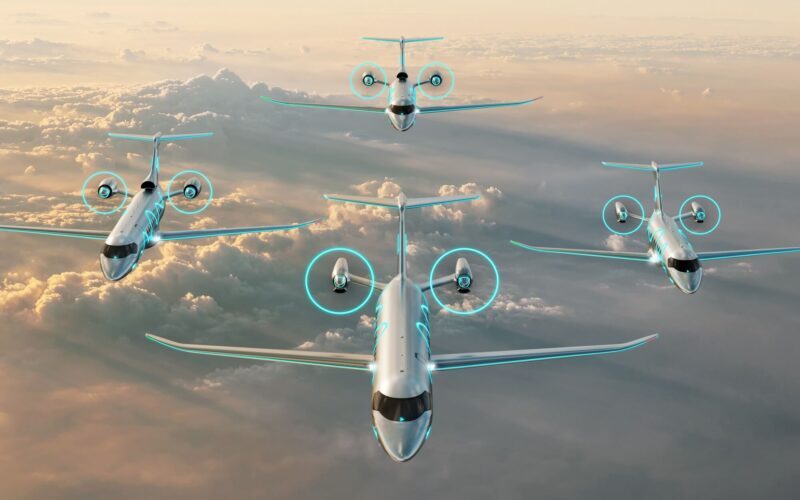Hydrogen-Electric Aircraft Seen as Future of Green Aviation

Hydrogen-electric propulsion is emerging as one of the most promising technologies to help aviation meet global climate targets and move toward zero in-flight emissions. Industry experts believe purpose-built hydrogen-electric aircraft could play a central role in achieving sustainable air travel, with scalability from business jets to larger commercial aircraft expected by the middle of the century.
Unlike traditional aviation fuel, hydrogen used in fuel cells produces only water vapor, offering a clean alternative that significantly reduces the industry’s carbon footprint. Paired with electric propulsion systems, this technology has the potential to transform how aircraft are designed, operated, and powered, supporting the aviation sector’s transition to net-zero emissions.
Companies such as Beyond Aero are at the forefront of developing hydrogen-electric powered aircraft. The French startup is working on smaller jets powered by hydrogen fuel cells, demonstrating the viability of the technology for business aviation and laying the groundwork for larger applications in the future.
Hydrogen-electric propulsion is being viewed not just as an experimental option but as a scalable solution capable of meeting the demands of global passenger traffic. By mid-century, experts anticipate that fleets of hydrogen-electric aircraft could replace or supplement conventional jetliners, offering sustainable travel without sacrificing performance.
As governments and regulators push for cleaner aviation solutions, hydrogen-electric technology is gaining momentum as a viable pathway toward long-term sustainability. Its adoption could redefine the future of aviation and position the industry as a leader in the fight against climate change.
Sources: AirGuide Business airguide.info, bing.com
